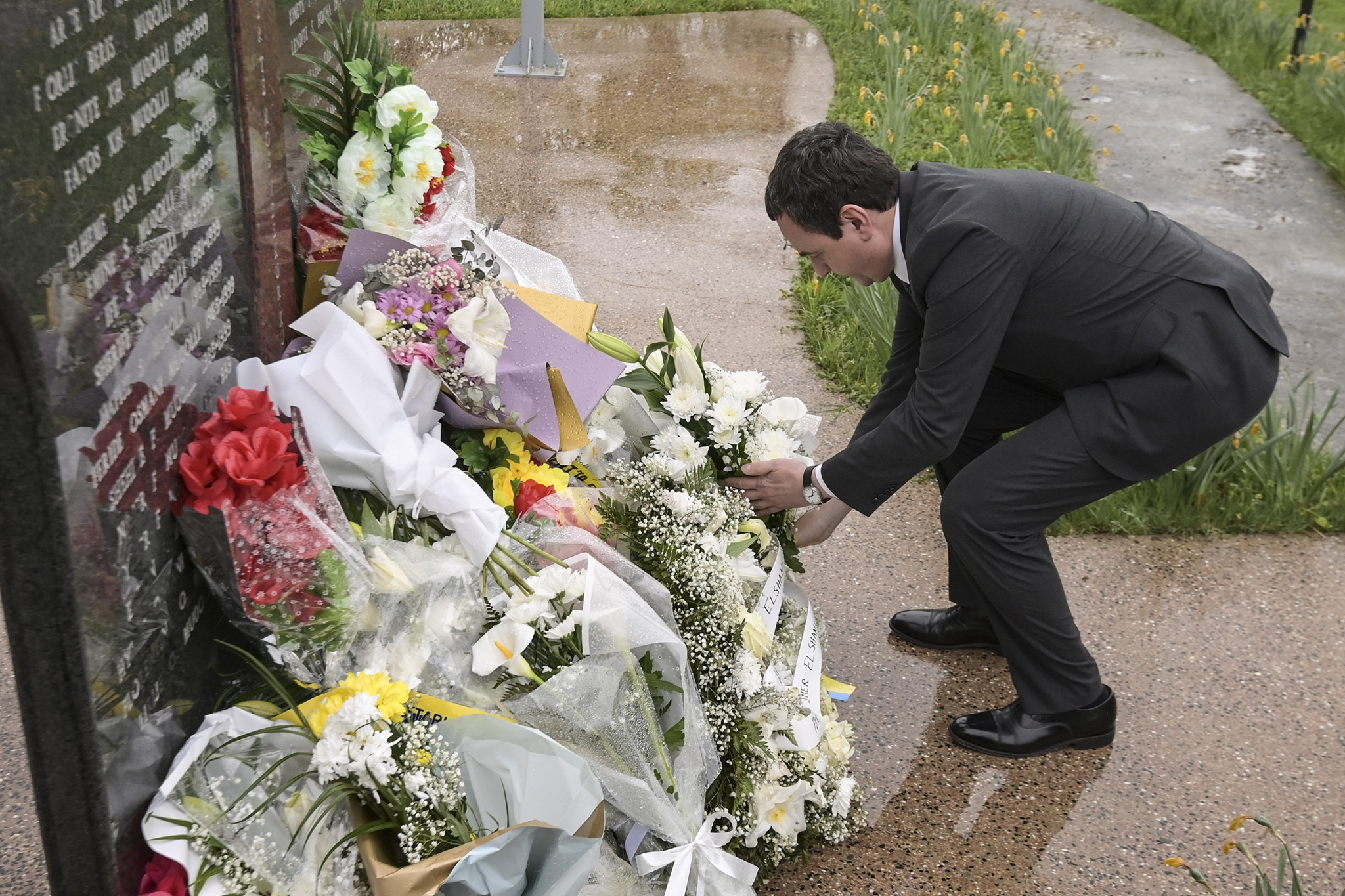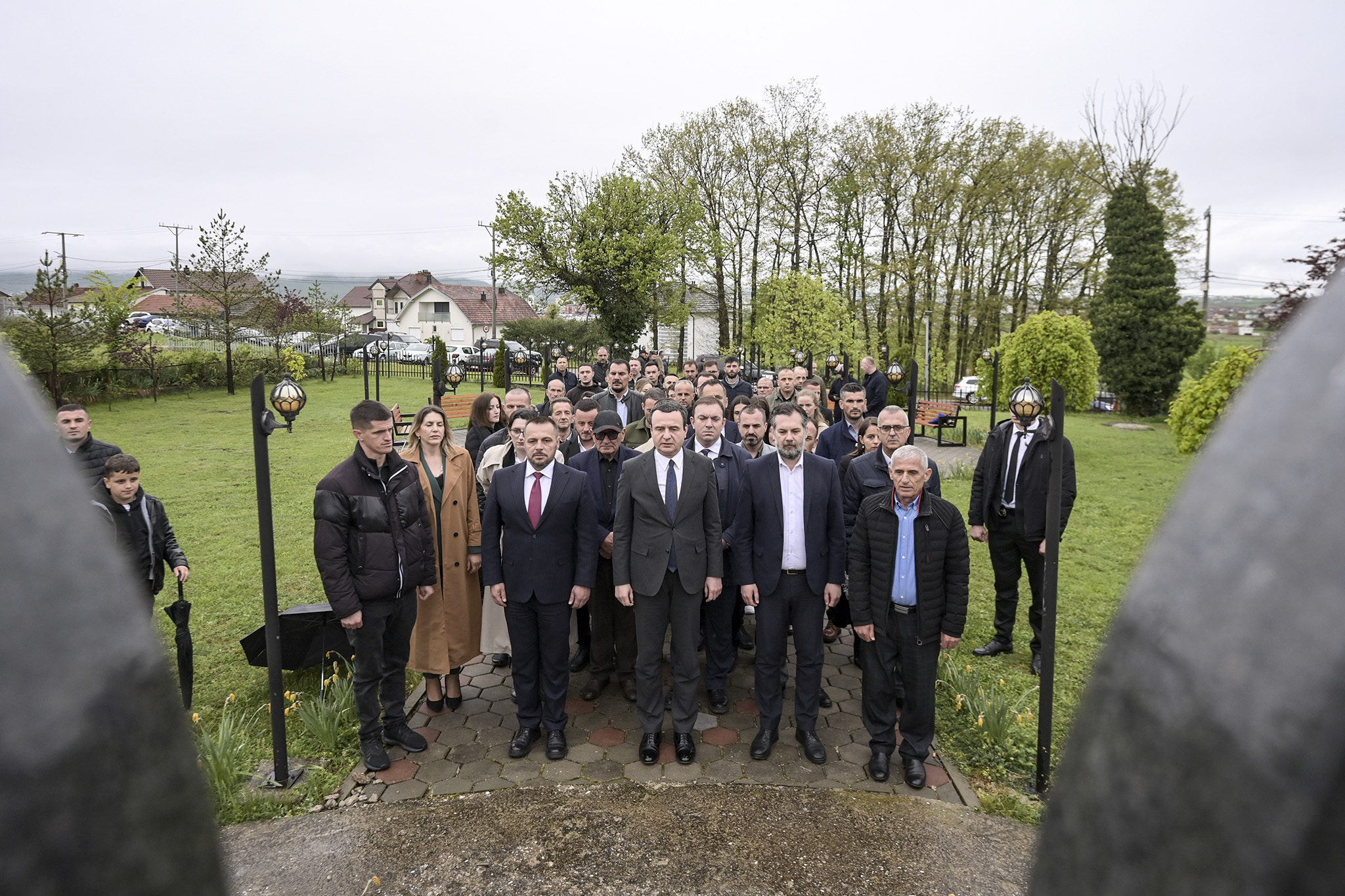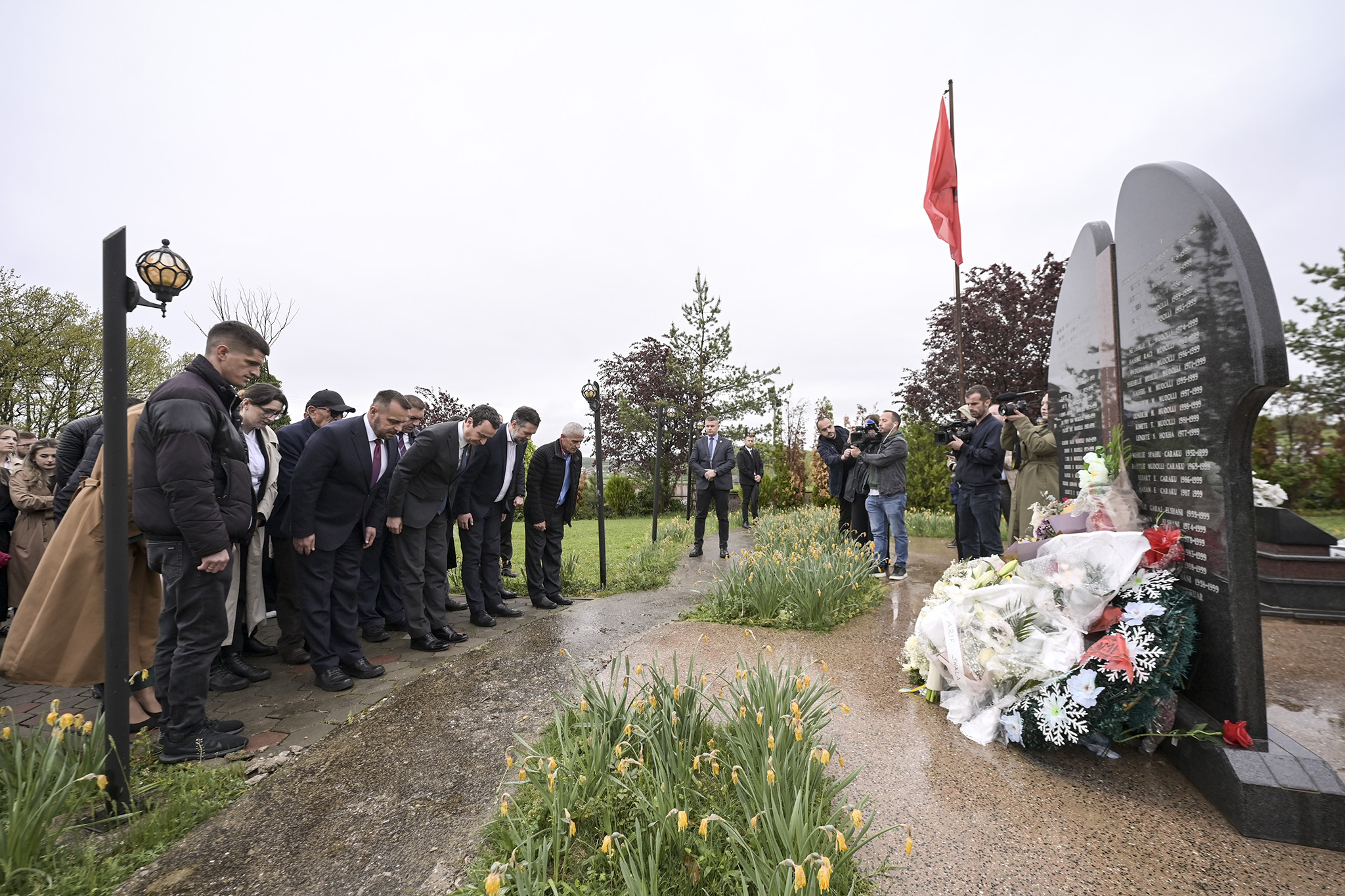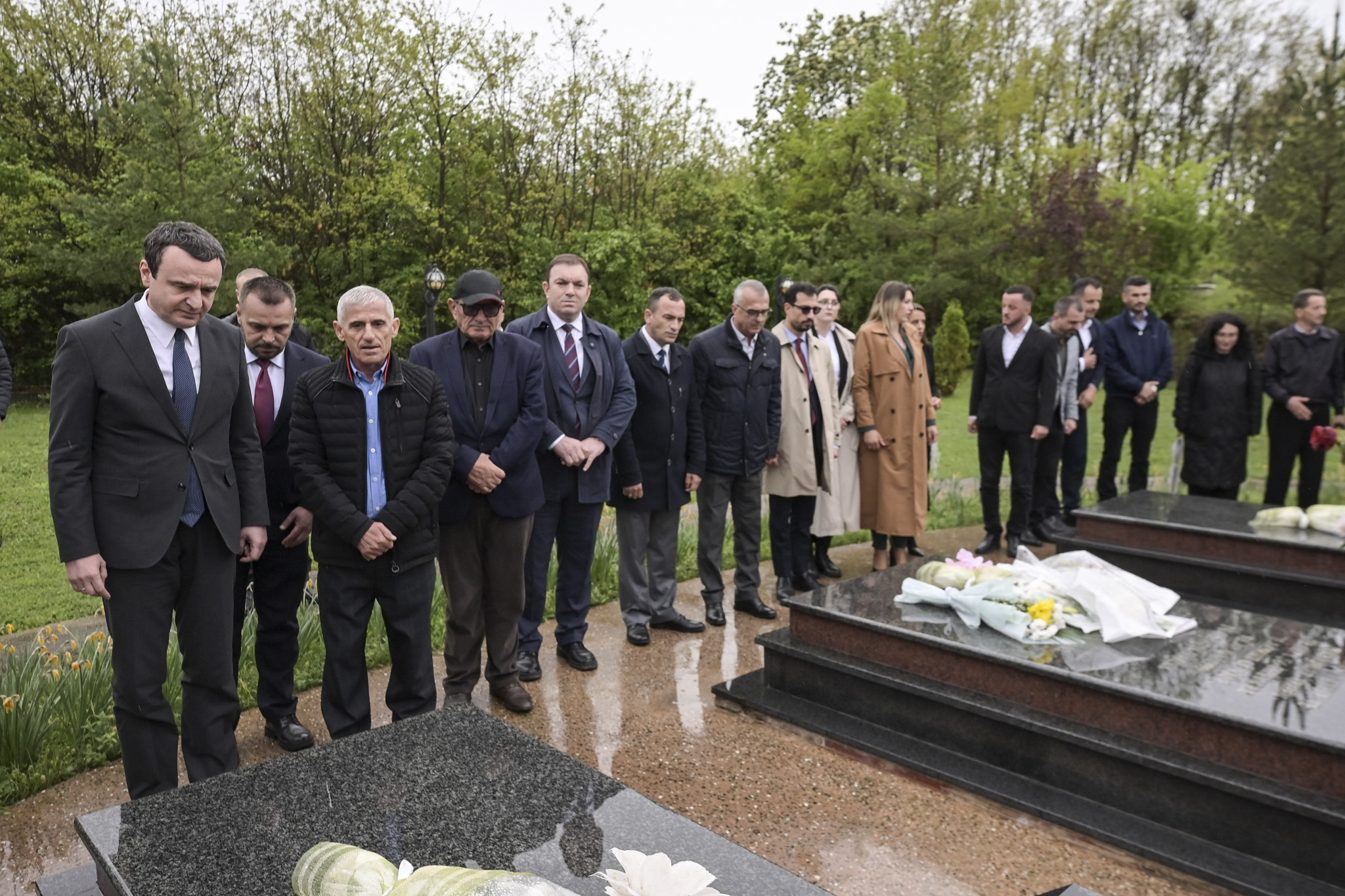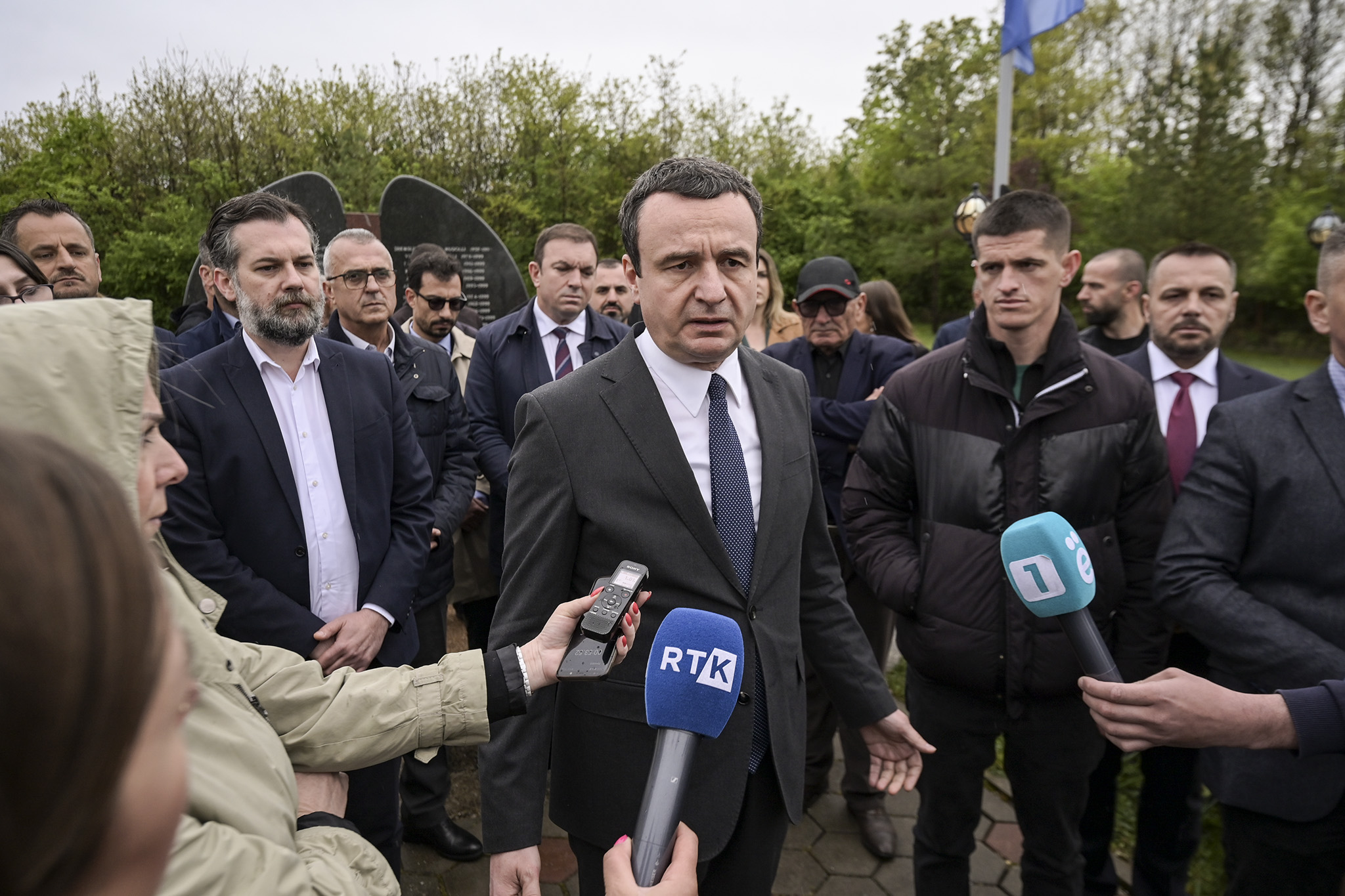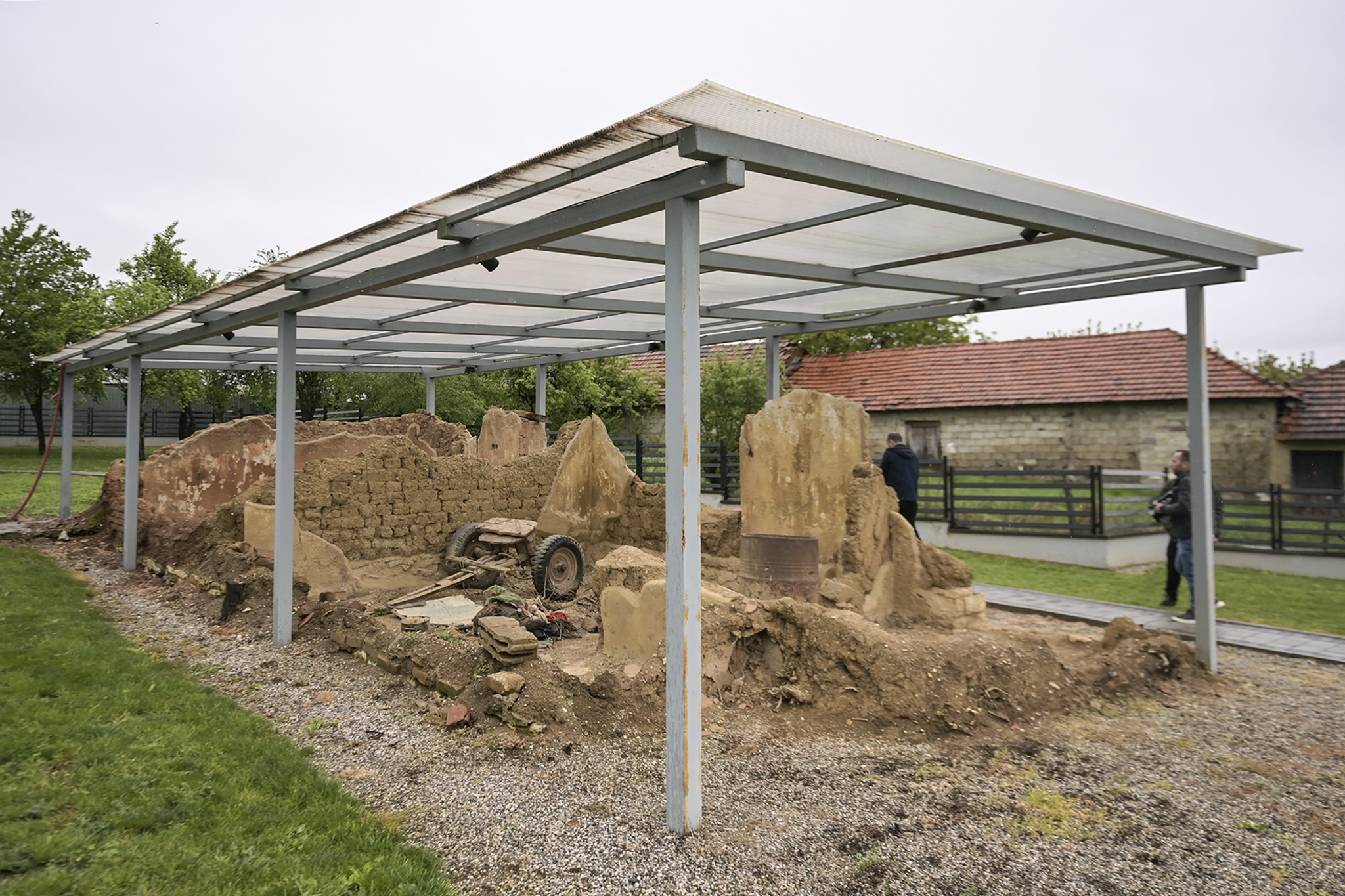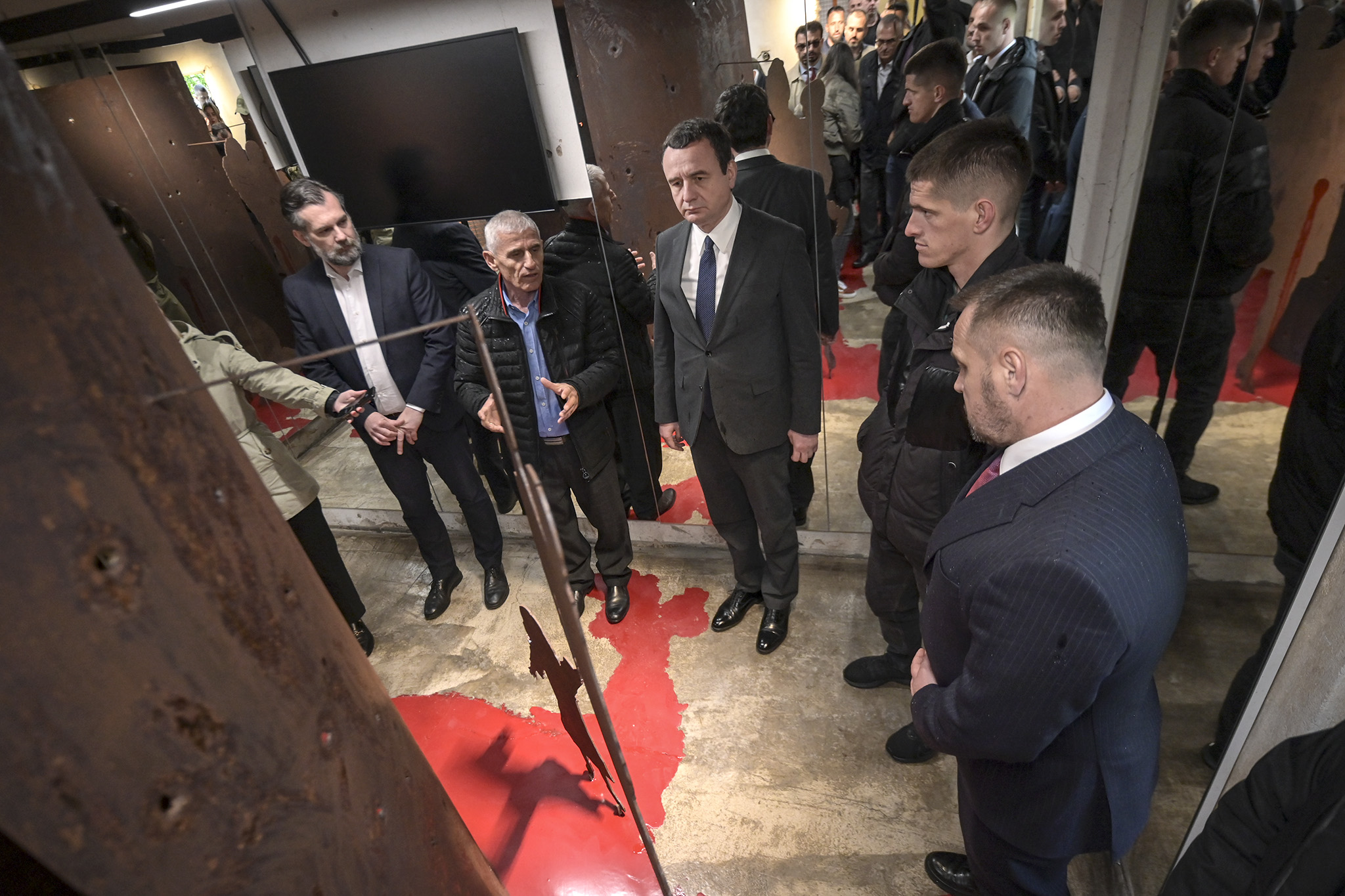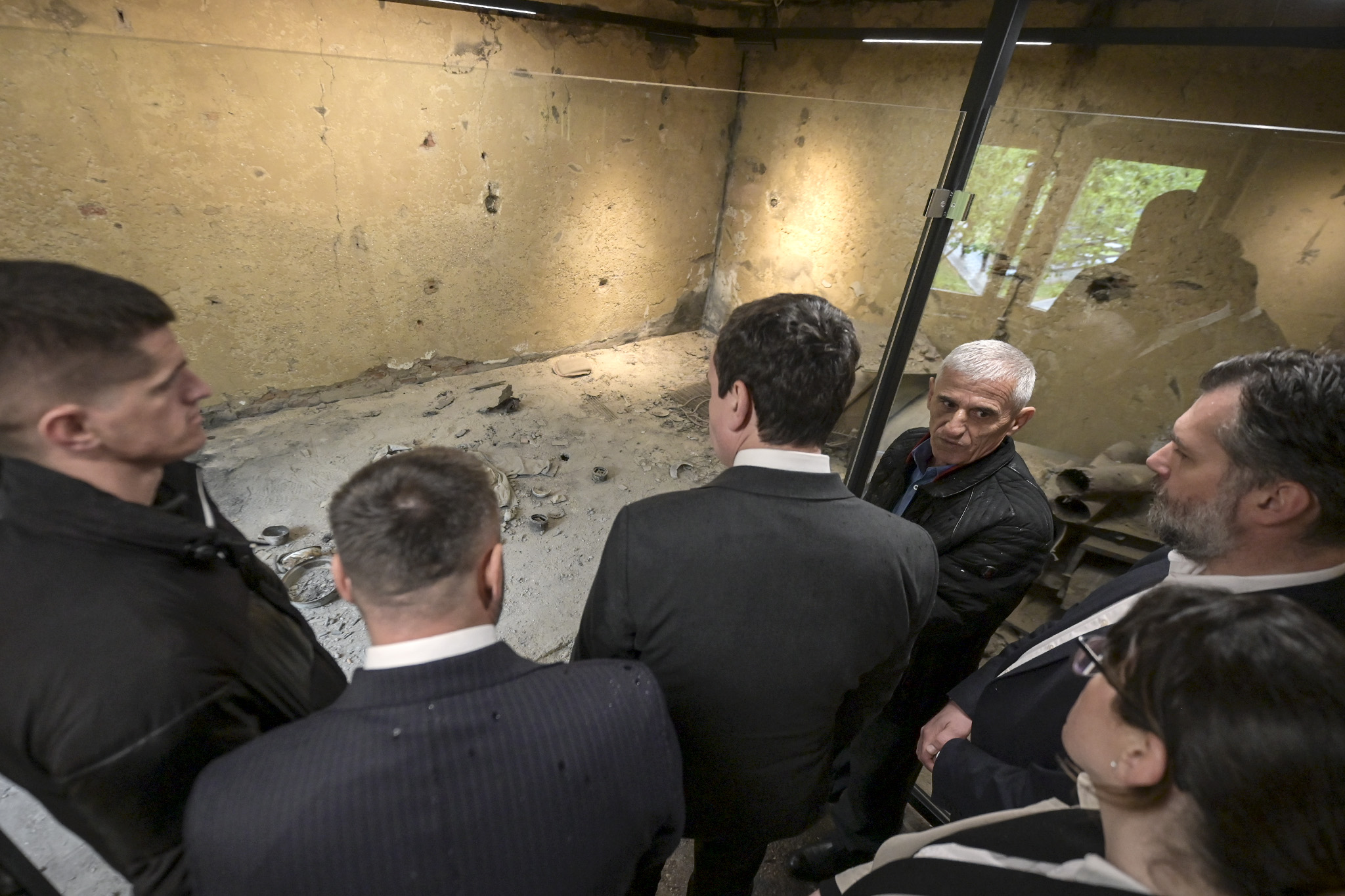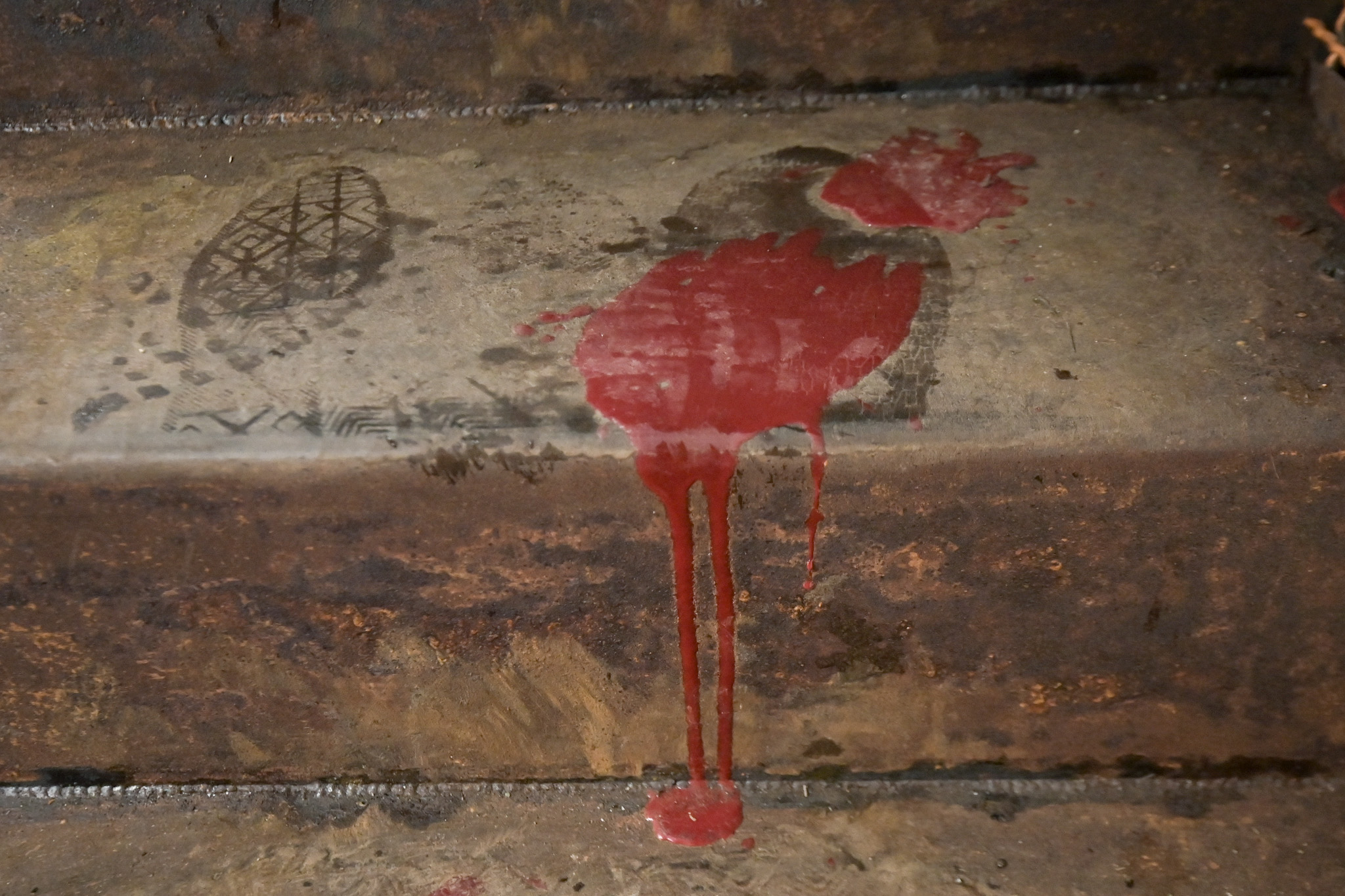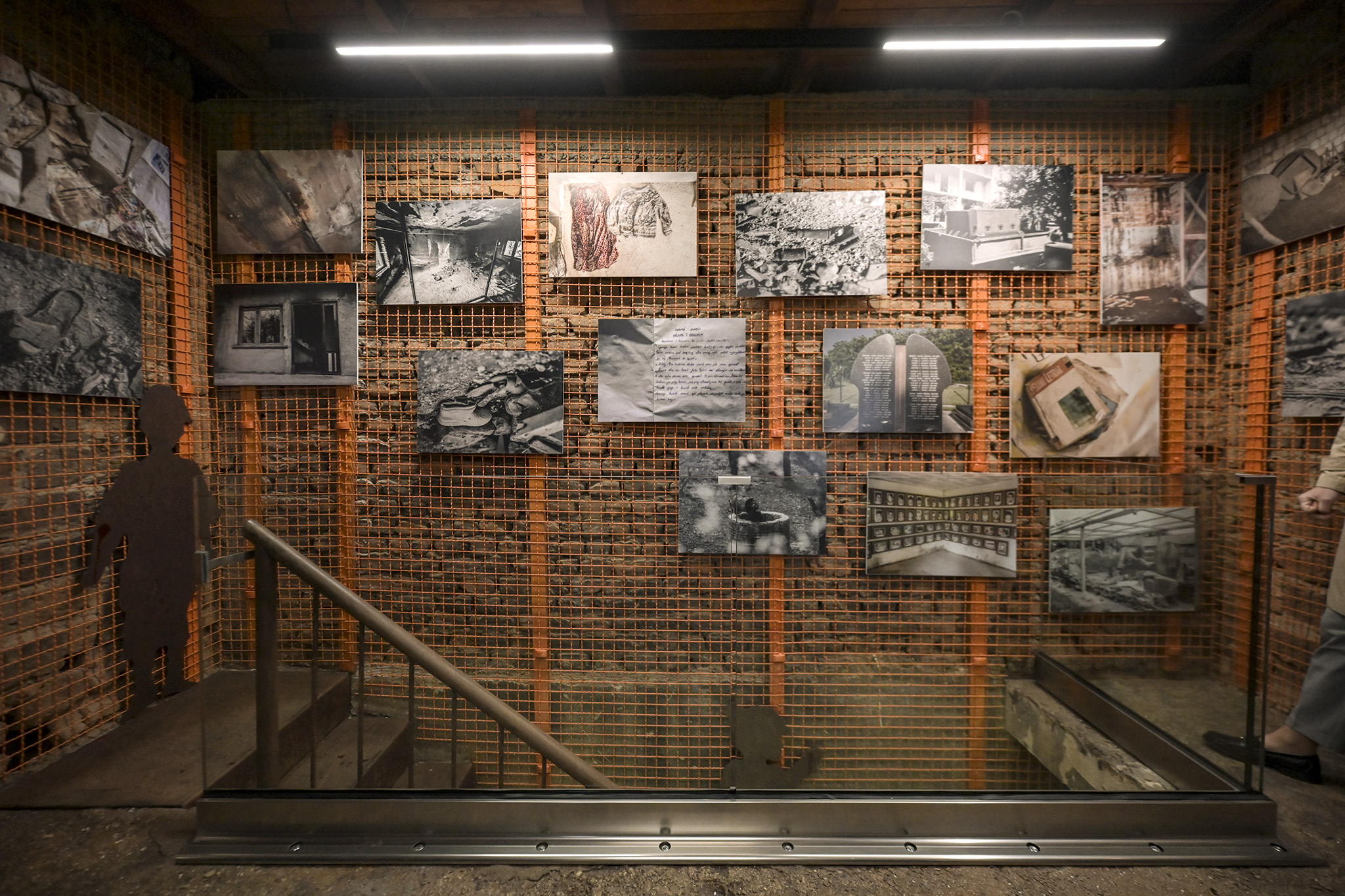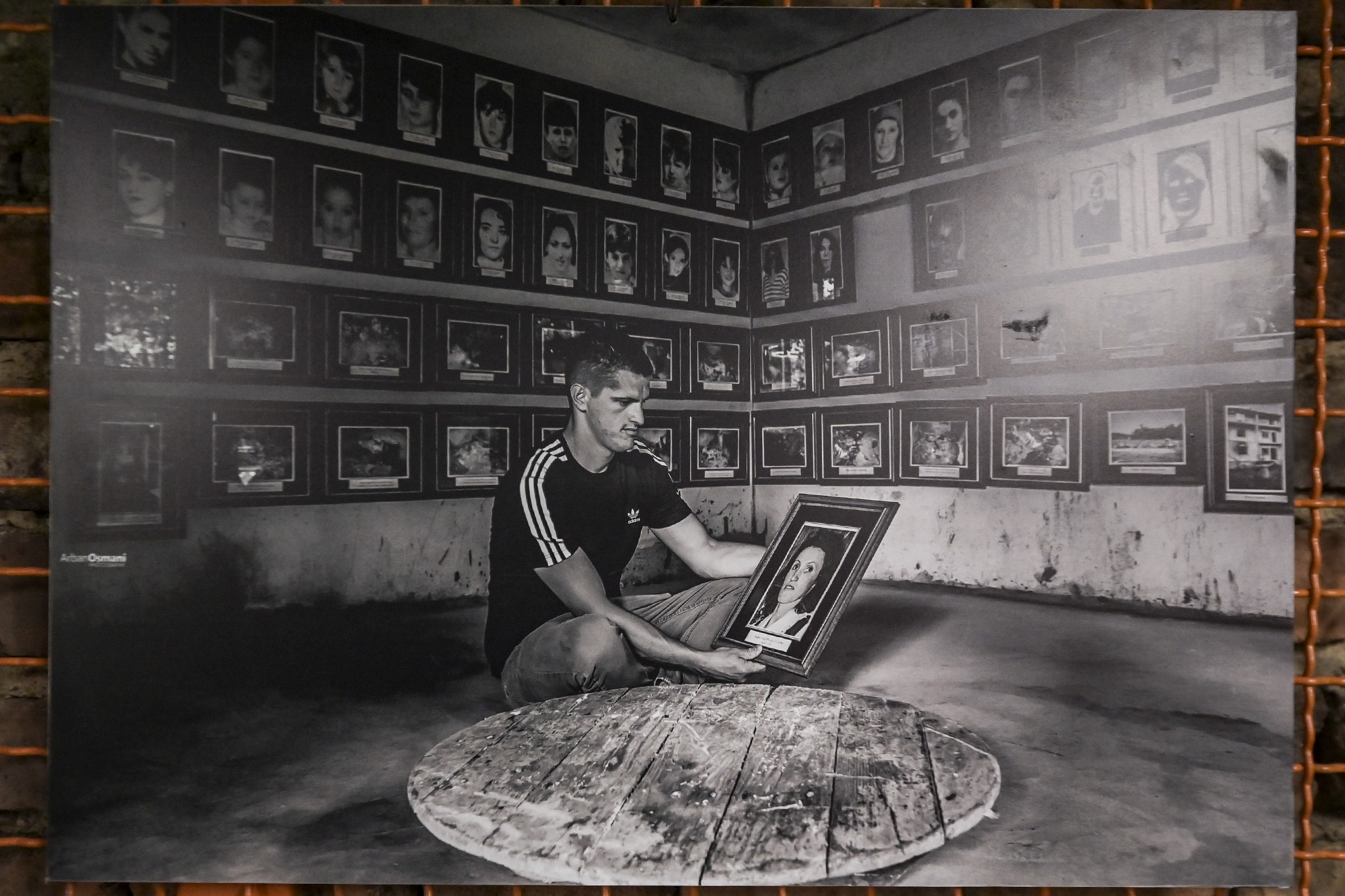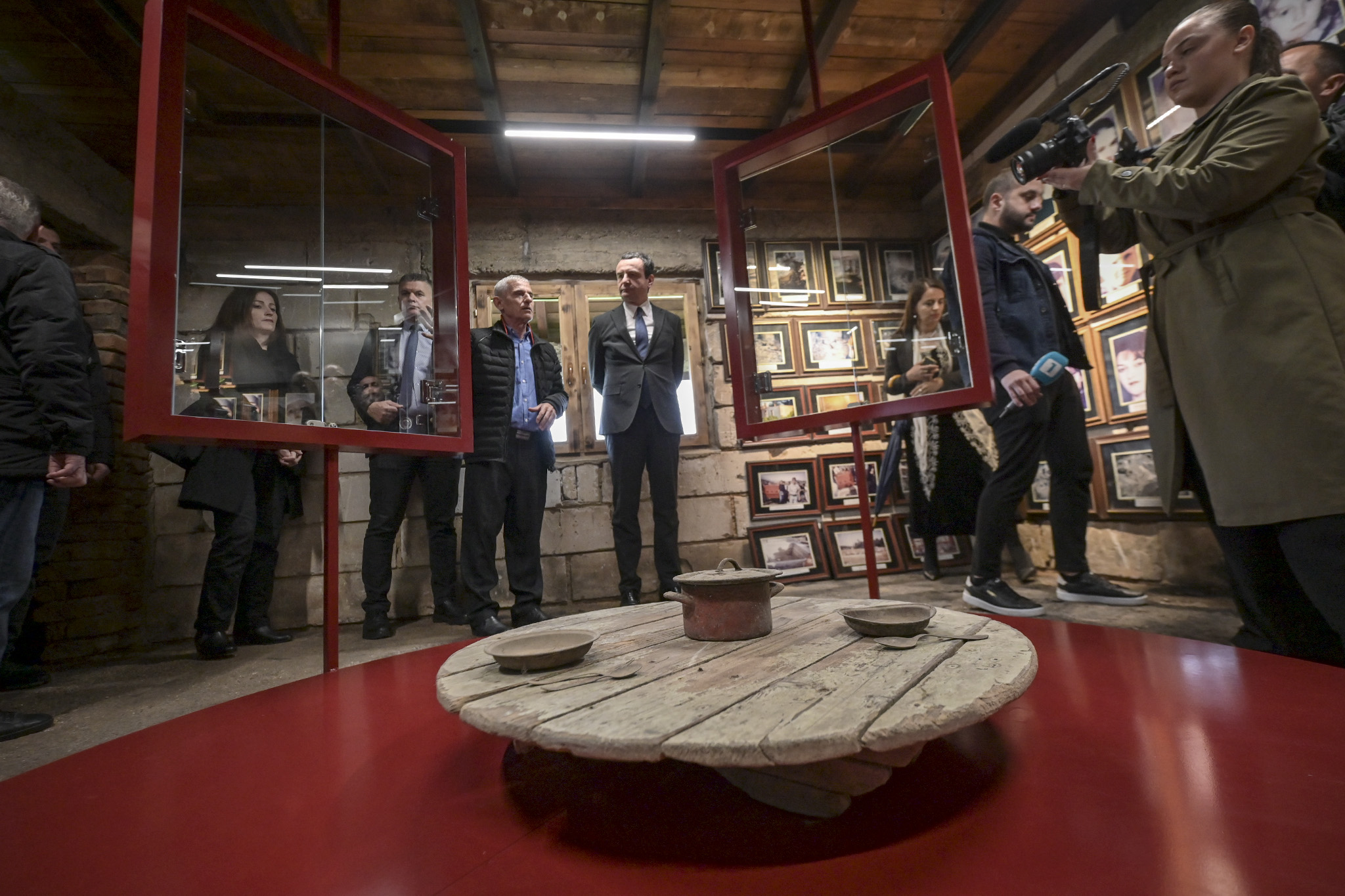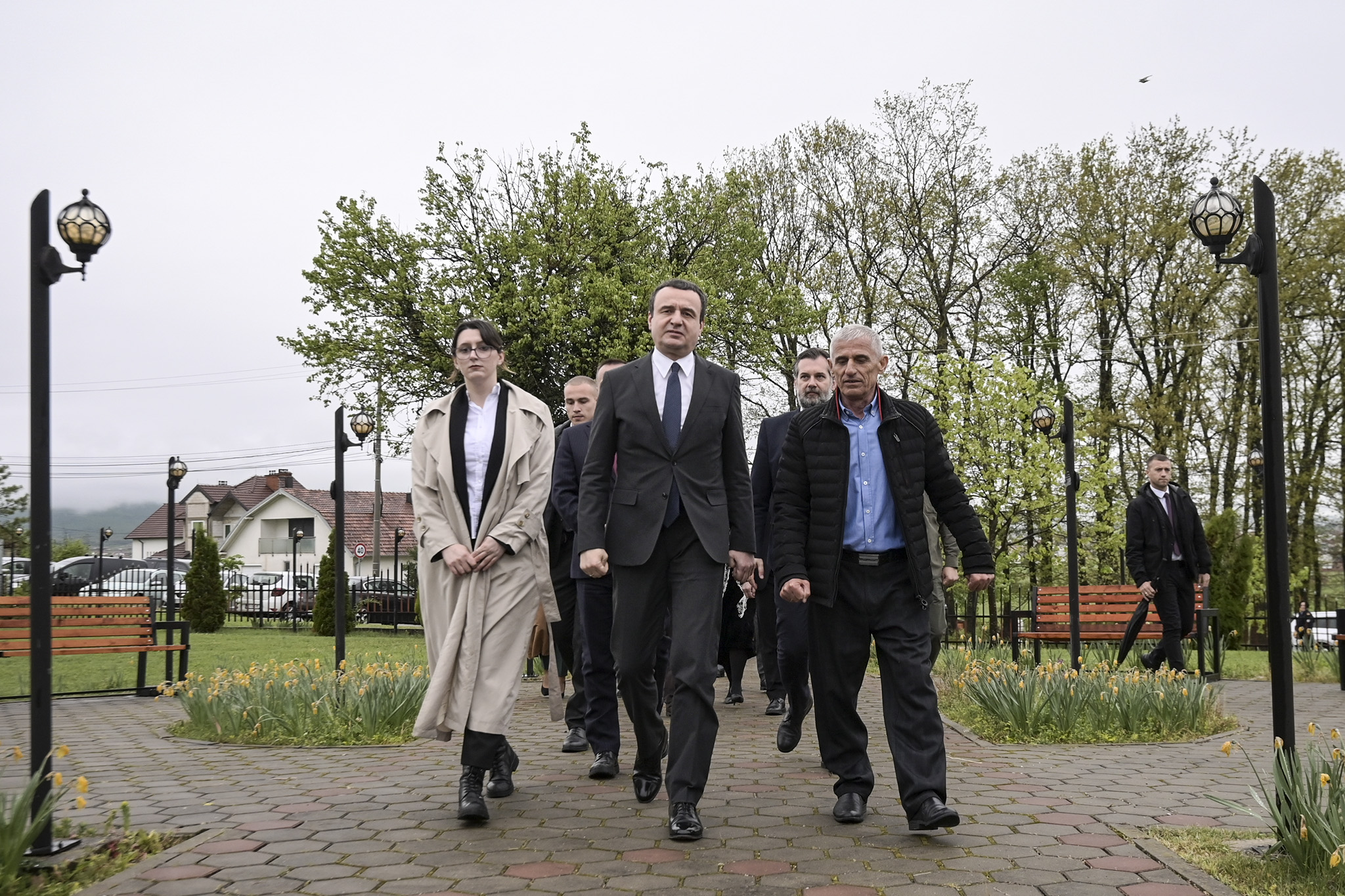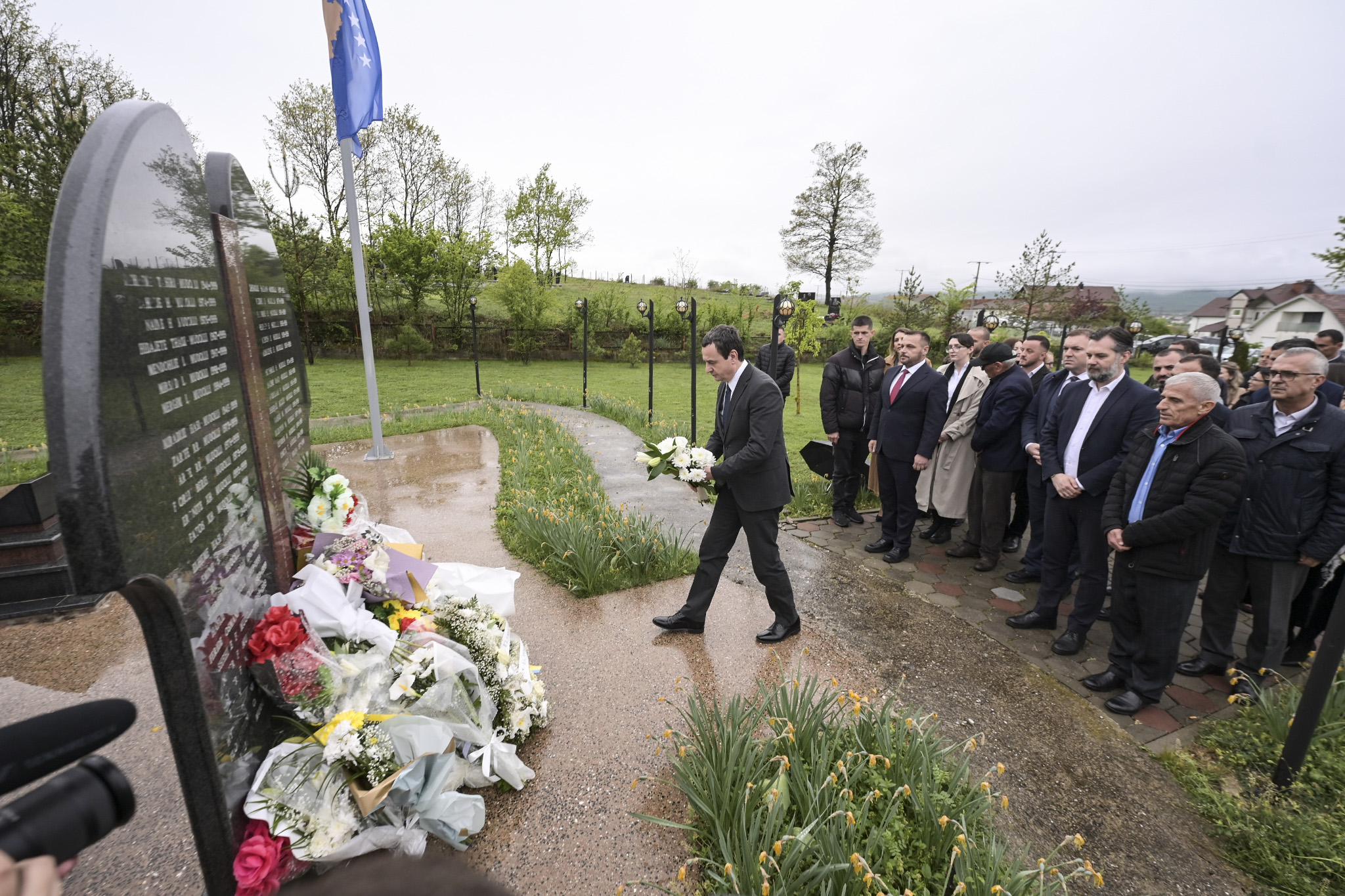Paklek, Drenas, 17 April, 2024
In commemoration of the massacre in Paklek of Drenas, the Prime Minister of the Republic of Kosovo, Albin Kurti, paid homage and laid wreaths of fresh flowers. On the 25th anniversary of this massacre, the Prime Minister commemorated the 54 Albanian civilians, cruelly killed by the genocide of the Serbian Army.
During these tributes, Prime Minister Kurti said that this brutal massacre is not erased from the memory of the Albanian people. He said that this represents an open and bleeding wound, since there is still no justice for the crimes committed by Serbia.
“The spilled blood, and the corpses turned into ashes, which could not be separated to be buried in a dignified manner separately but had to be done together, are evidence of Serbia’s genocide against the Albanian people of Kosovo,” said the prime minister. He added that the fact that after they killed them, they collected them and burned them in an attempt to eliminate the traces of the crime, shows how guilty those criminals are.
Prime Minister Kurti reiterated that last year, on June 1, the chairman of the Governmental Commission for Missing Persons, Andin Hoti, sent a letter to the president of Serbia to open the archive of the 37th Motorized Brigade of the Yugoslav Army. The same request has been sent to the vice president of the European Commission, the high representative for Foreign Policy and Security, Josep Borrell, but there is still no answer regarding the necessity of opening the archive.
After paying tributes and placing flowers at the cemeteries of those killed, Prime Minister Kurti also visited the museum house of the Muqolli family, in which defenseless, unarmed Albanian civilians were killed and burned.
In the Memorial Complex in this village, the remains of 54 civilians are laid to rest in a common cemetery, who were killed, burned, massacred by the Serbian enemy forces, who did not spare even 6-month-old babies to 75-year-old elders. 25 of those killed were under the age of 18. 18 of them were children, younger than 12 years old. Among them are five babies from six months to two years old. Lirie Muqolli was only six months old at the time.
In these tributes, Prime Minister Kurti was accompanied by the Minister of Culture, Youth and Sports, Hajrulla Çeku, the Minister of Defense, Ejup Maqedonci, the Deputy Minister of the Ministry of Internal Affairs, Bardhyl Dobra, as well as deputies of the Assembly of the Republic of Kosovo.
Prime Minister Kurti’s complete statement:
Today it has been 25 years since the Paklek massacre here in Drenica, when 54 Albanians were cruelly killed. Leutrim was 9 years old, he is the survivor of that massacre, while among these 54 people who were killed, who were defenseless, unarmed civilians, and there were 25 minors, children, while 18 of them were under the age of 12. So, out of 54 people, 25 were younger than 18 years old, while 18 of them were even younger than 12 years old.
After they have killed them, they have collected them and burned them in an attempt to erase the traces of the crime and it shows how guilty those criminals are for this brutal massacre, which is not erased from our memory, is not forgotten by our people and, which represents open and bleeding wound, since there is still no justice.
In Paklek, 54 were killed that day, 25 years ago. Nine are still missing. 1597 are still missing from the last war, 9 of which are from Paklek. On this occasion, it should be emphasized that the responsibility for these murders in Drenica, including Paklek, is the 37th motorized brigade of the Yugoslav army.
Therefore, the chairman of the Government Commission for the Disappeared, Andin Hoti, who is the son of Professor Ukshin Hoti, sent a letter last year, on June 1, to the President of Serbia to open the file, to open the archive of the Motorized Brigade 37 of the Yugoslav Army, and then on September 1, he repeated this request to the vice president of the European Commission, the high representative for foreign policy and security, Josep Borrell, but we still do not have an answer regarding the necessity of opening the archive. Although we made an agreement in Brussels on the issue of missing people, the archives, the files of crimes against Albanians, which are kept closed in Belgrade, are still not being opened. In particular, for the massacres in Drenica, it is necessary to open the archive, the file closed there of the 37th motorized brigade of the Yugoslav Army.
This spilled blood, these ashes-turned corpses that could not be separated to be buried in a dignified manner separately, but had to be done together, are evidence of Serbia’s genocide against the Albanian people of Kosovo, but at the same time they they are also calls for justice. The truth is known, justice must be applied, so that we can have peace as a people and the victims can rest in peace.
Glory to all the nation’s martyrs and martyrs here in Paklek and all over long-suffering Kosovo.
Last modified: April 18, 2024
